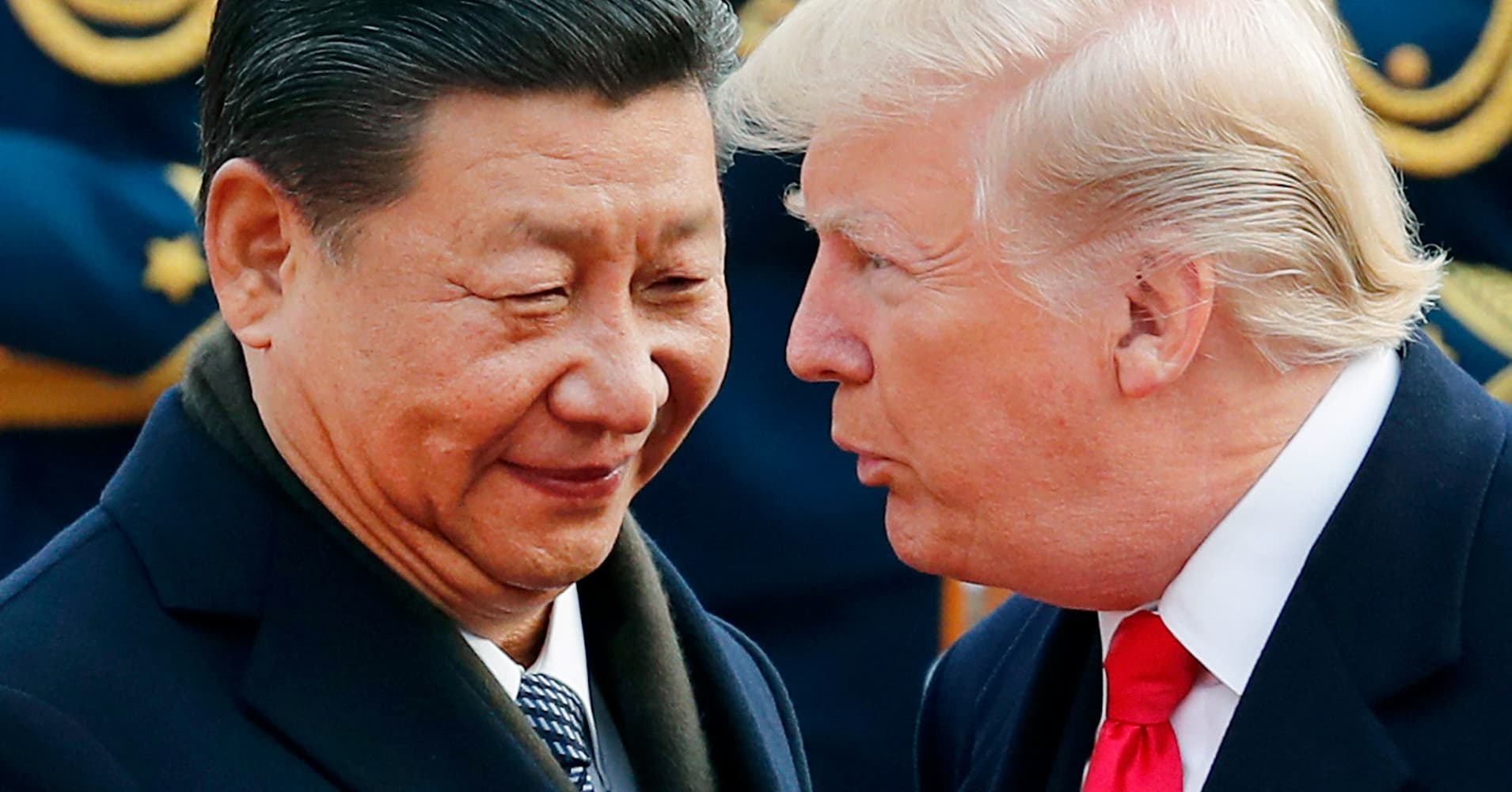
The trade war may be hurting China more than the U.S., but by spring, China could be looking up as the U.S. slows, particularly if the friction continues, economists said.
According to Bank of America Merrill Lynch economists, the China slowdown could start to reverse in the next couple of months, due to large amounts of domestic stimulus. For the U.S., economists have been forecasting a slower second half of the year, with growth under 2 percent in some forecasts, as stimulus from tax cuts and spending wears off.
Trade negotiators are meeting in Beijing this week, and positive comments around those talks have been helping steady markets.
"So far the trade war has had a much bigger impact on Chinese growth than US growth. However, that could change by next spring," the BofA economists said in a note. "...the US has tried to minimize the blowback from its tariffs by avoiding consumer products and either avoiding or giving exemptions for products without easy substitutes. Looking ahead, the next moves would be much more painful."
The economists also say Chinese has more leverage to fight the impacts of the trade war on its economy, while the U.S. risks seeing a drop in confidence.
"The impact of the trade war on U.S. confidence seems to be growing," BofA economists noted. "Until recently, consumer, business and investor confidence seemed to be Teflon coated when it came to policy uncertainty. The US had a big offset to the trade war-a double dose of tax cuts and spending increases. Now, with the stimulus fading, confidence seems more sensitive to news that would have been ignored in the past."
Apple's revenue miss, announced last week, also highlighted that the China was being impacted by trade wars and there potential for more damage to U.S. companies and the economy. Apple blamed a revenue shortfall in large part on iPhone sales in Chine. But the BofA economists also say that Apple's revenue miss exaggerates the weakness in the Chinese economy, while other factors could be slowing Apple sales, including competition, price, an informal boycott of U.S. goods, and the drop in China's currency.
Trump administration officials and the president, himself, have pointed to the slower Chinese economy as a reason for Beijing to negotiate. "I think China wants to get it resolved. Their economy's not doing well," President Donald Trump told reporters at the White House on Sunday, according to Reuters. "I think that gives them a great incentive to negotiate."
Commerce Secretary Wilbur Ross said Monday that the tariffs are making it difficult for China to stave off social unrest.
But economists say the Chinese economy should start turning around. The BofA economists say that China has more room to ease policy in response to the trade war. Last week, China implemented another cut in bank reserve requirements and more moves have been expected.
"China is employing its full arsenal of stimulus tools-monetary and credit easing, a weaker currency, spending increases and tax cuts," the BofA economists noted. "…Meanwhile, the US has limited room to loosen policy. Fiscal policy is trapped in gridlock and the government shutdown actually means a small fiscal tightening. The Fed can cut rates, but is reluctant to do so with the economy already beyond full employment. It also worries that a quick response creates moral hazard by anesthetizing the rest of Washington against its policy problem."
Cesar Rojas, Citigroup global economist, said he sees an opportunity for a deal now, in part because of the dynamic of weaker Chinese growth but there is no guarantee one will be reached. "There is a window of opportunity for the U.S. and China to come to a deal," he said. "Growth is moderating in China, equity markets have been falling in the U.S. and China and this basically opens a window of opportunity. This may close soon."
Rojas said the U.S. economy is still strong, giving it more leverage against China, where its stimulus has so far failed to stem weakening. But that should change, and China could stabilize as the U.S. growth weakens later in the year, shifting the advantage to China. There could be a scenario where the March 1 deadline passes without new tariffs. "Even if there is no tariff increase, we describe this situation as tariff limbo. This uncertainty is having affect on the economic decisions which is already having an impact," he said.
No comments:
Post a Comment